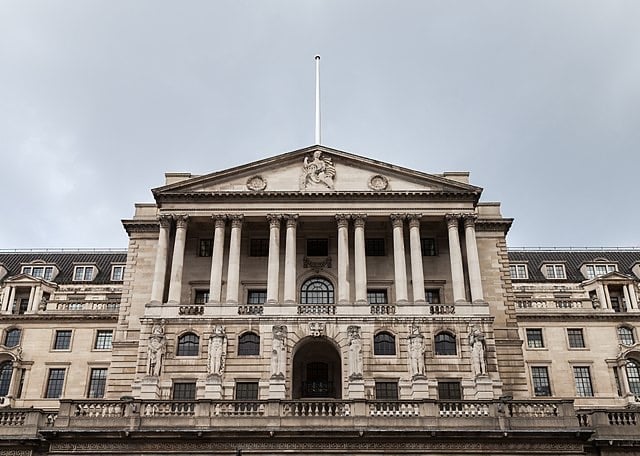Britain’s economy expanded by 0.3 per cent in the second quarter of 2025, surpassing economists’ expectations and offering a boost to Chancellor Rachel Reeves despite mounting global trade tensions.
The Office for National Statistics (ONS) revealed gross domestic product (GDP) growth slowed from 0.7 per cent in the first three months of the year, when businesses had rushed to prepare for stamp duty changes. However, the April-to-June expansion exceeded the 0.1 per cent forecast by economists polled by Reuters and the Bank of England.
June proved particularly robust, with monthly GDP rising 0.4 per cent, surprising observers and helping to offset weaker performance in April and May. The better-than-expected figures come as the government stakes its political success on reviving economic growth.
Growth Driven by Services Sector
ONS director of economic statistics Liz McKeown said growth was “led by services, with computer programming, health and vehicle leasing growing” across the quarter. “Construction also increased while production fell back slightly,” she added.
The economy showed weakness in April and May as purchases were brought forward to earlier in the year ahead of stamp duty and tariff changes. “Some activity had been brought forward to February and March,” McKeown explained, “but then recovered strongly in June.”
Year-on-year growth reached 1.2 per cent, compared with economists’ median forecast of 1.0 per cent, providing further evidence of underlying economic resilience.
Chancellor Claims Victory
Rachel Reeves welcomed the figures as “positive” and evidence of “continued growth in the second quarter” following a strong start to 2025.
I know that the British economy has the key ingredients for success but has felt stuck for too long,” the Chancellor stated. That is why we’re investing to rebuild our national infrastructure, cutting back on red tape to get Britain building again and boosting the national minimum wage to make work pay.
Reeves has repeatedly highlighted that British economic growth in the first quarter was the fastest among G7 nations, though economists warn the outlook remains uncertain amid global trade tensions.
Cost Pressures Mount
Despite the positive headline figures, businesses and households faced significant cost pressures during the quarter. Energy, water and council tax bills rose sharply, contributing to higher inflation overall.
Employers grappled with increased national insurance contributions and higher minimum wages, squeezing profit margins across multiple sectors. These rising costs led to caution among consumers, dampening growth compared with the robust first quarter performance.
The services sector proved resilient, with wholesale, retail and computer programming recording strong performances. Car leasing and advertising also contributed positively, offsetting declines in education, telecommunications and legal services.
Sterling Rises on Data
Financial markets responded positively to the surprise figures, with sterling rising slightly against the dollar immediately after the data release. The pound’s modest gains reflected relief that the UK economy maintained momentum despite challenging conditions.
Professor Joe Nellis, economic adviser at accountancy firm MHA, described the GDP figures as “welcome news” for the Labour government. This round of gross domestic product data is undoubtedly encouraging, building on the UK economy’s strong showing,” he noted.
Kevin Brown, savings specialist at Scottish Friendly, added: “It suggests that in spite of the tax rises announced in the budget and multiple sources of global economic uncertainty, the UK economy has some resilience. It could yet prove the naysayers wrong.”
Trade War Clouds Gather
The positive second-quarter performance comes against a backdrop of escalating global trade tensions. US President Donald Trump implemented sweeping tariffs in April 2025, imposing a 10 per cent baseline tariff on UK goods alongside higher rates for other nations.
Whilst the UK secured relatively favourable treatment compared with some trading partners, the tariffs threaten to dampen future growth. The International Monetary Fund has warned Trump’s trade policies could reduce global GDP growth by 0.5 per cent through 2026.
British manufacturers have described the US tariffs as “devastating,” with particular concerns about the 25 per cent levy on UK car exports. The Society of Motor Manufacturers and Traders warned the measures could “completely destabilise” the UK automotive industry.
Challenges Ahead
Looking forward, economists warn the UK faces significant headwinds. The National Institute of Economic and Social Research predicts Trump’s tariffs could reduce UK GDP by up to 2.5 per cent over three years if trade tensions escalate further.
Business investment growth has already shown signs of weakening as firms delay spending decisions amid uncertainty. The inverse relationship between US trade policy uncertainty and UK investment levels suggests companies are adopting a wait-and-see approach.
The government’s fiscal headroom remains limited by high public borrowing and debt levels, constraining Reeves’s ability to provide additional economic stimulus. Recent parliamentary rebellion against welfare reform proposals has also highlighted political obstacles to spending cuts.
What Happens Next
The Bank of England’s Monetary Policy Committee will closely scrutinise the GDP data when it meets to consider interest rate decisions. With the base rate currently at 4.75 per cent, policymakers must balance growth concerns against persistent inflation pressures.
Reeves acknowledged “there is more to do” to deliver sustainable growth, promising the government would “go further and faster to make working people better off.” The Chancellor’s autumn Budget will prove crucial in determining whether momentum can be maintained.
For now, the UK economy has demonstrated unexpected resilience in challenging circumstances. Whether this strength can persist amid mounting global headwinds remains the key question facing policymakers and businesses alike.
Follow for more updates on Britannia Daily



